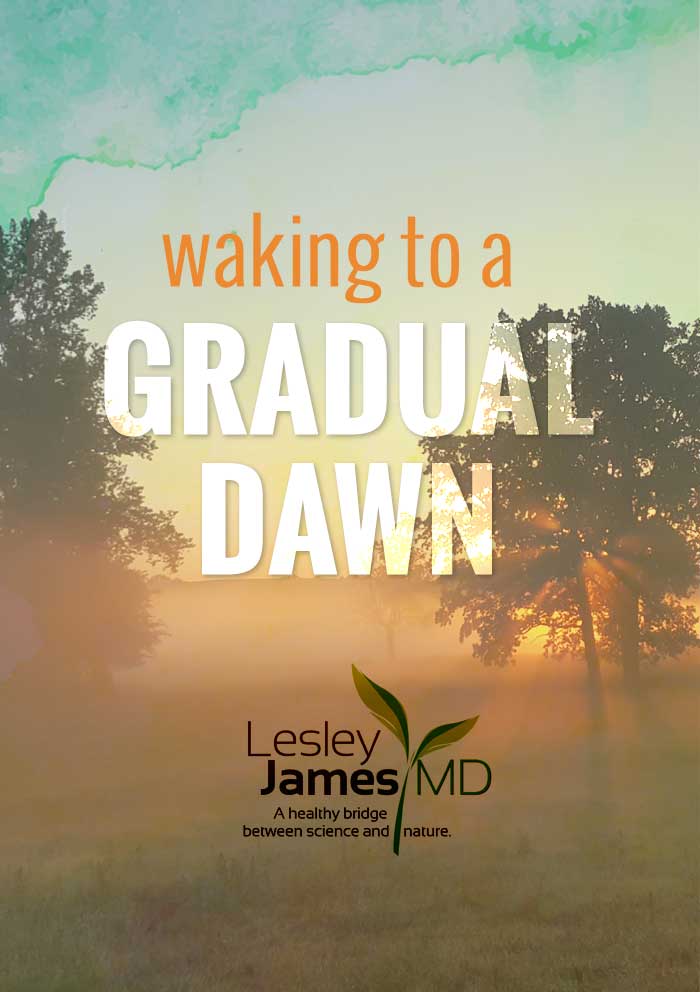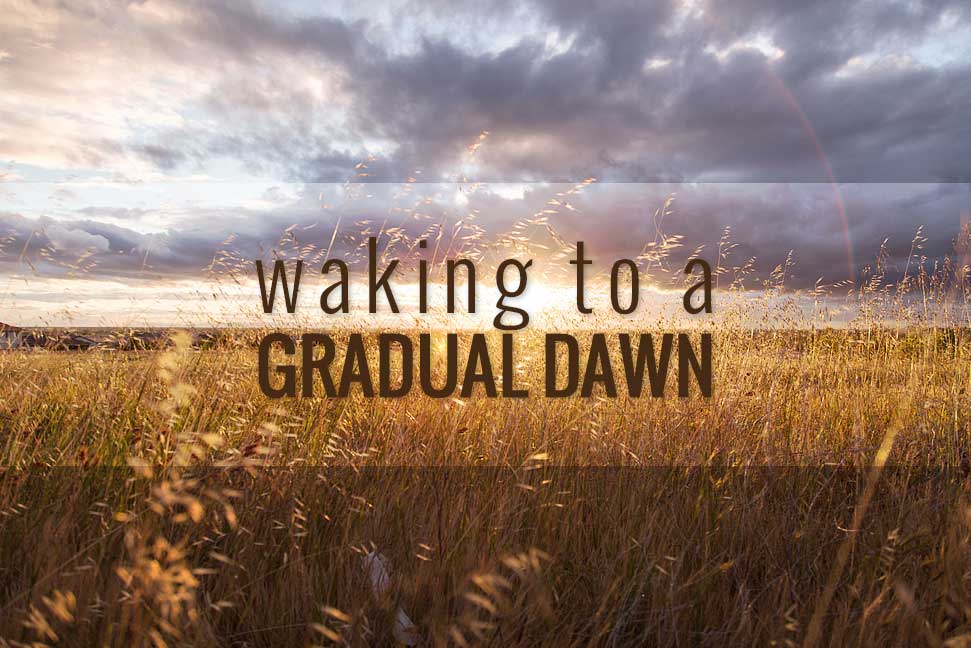Mornings. While some anticipate a superb sunrise, for others it’s the dreaded dawn.
Well, here’s a rousing thought: Your performance and attitude may, in part, be attributed to your method of awakening. But no need to hide under the covers, as even though that harsh alarm and the resulting wide-awake jolt may set the tone for the day, there’s a simple solution, known as dawn simulation.

So, what exactly is a dawn simulator?
Simply put, it’s a natural alarm clock that involves timing lights in the bedroom to come on gradually, over a period of between 30 minutes and two hours before your preferred time of awakening. The concept was first patented in the late 1800s, with the realization that light enters through the eyelids, triggering the body to begin its wake-up cycle, including the release of cortisol, a hormone that regulates immune response, so that by the time the light is at full brightness, sleepers wake up on their own, without the need for a traditional alarm.
Your performance and attitude may, in part, be attributed to your method of awakening.
Research shows that, when compared with waking in dim light, the 30-minute sunrise not only left subjects feeling more refreshed and alert upon waking, but reflected an increase in agility, cognitive performance, response time and improved mood. In addition, cortisol levels were reported as significantly elevated, resulting in better overall hormone balance throughout the day.
The treatment is complete prior to awakening.
Dawn simulators, also known as wake-up lights or natural light alarm clocks that gradually transition you from a state of slumber, differ from other light therapies, as the treatment is complete prior to awakening, making it a convenient alternative to post-awakening bright therapy. The process is a lower intensity, and not considered a therapy for Seasonal Affective Disorder (SAD), but can certainly be used in addition to treatment.
In my house, we’ve fully embraced waking to a gradual dawn rather than the jolt of an alarm, especially living in Rochester, NY, where 83% of our days are cloudy—a tad lower than Seattle’s 84%. I hope that you, too, will give dawn simulators a try and reap the benefits of this truly bright idea for rising and shining.
Light Therapy Reviews


